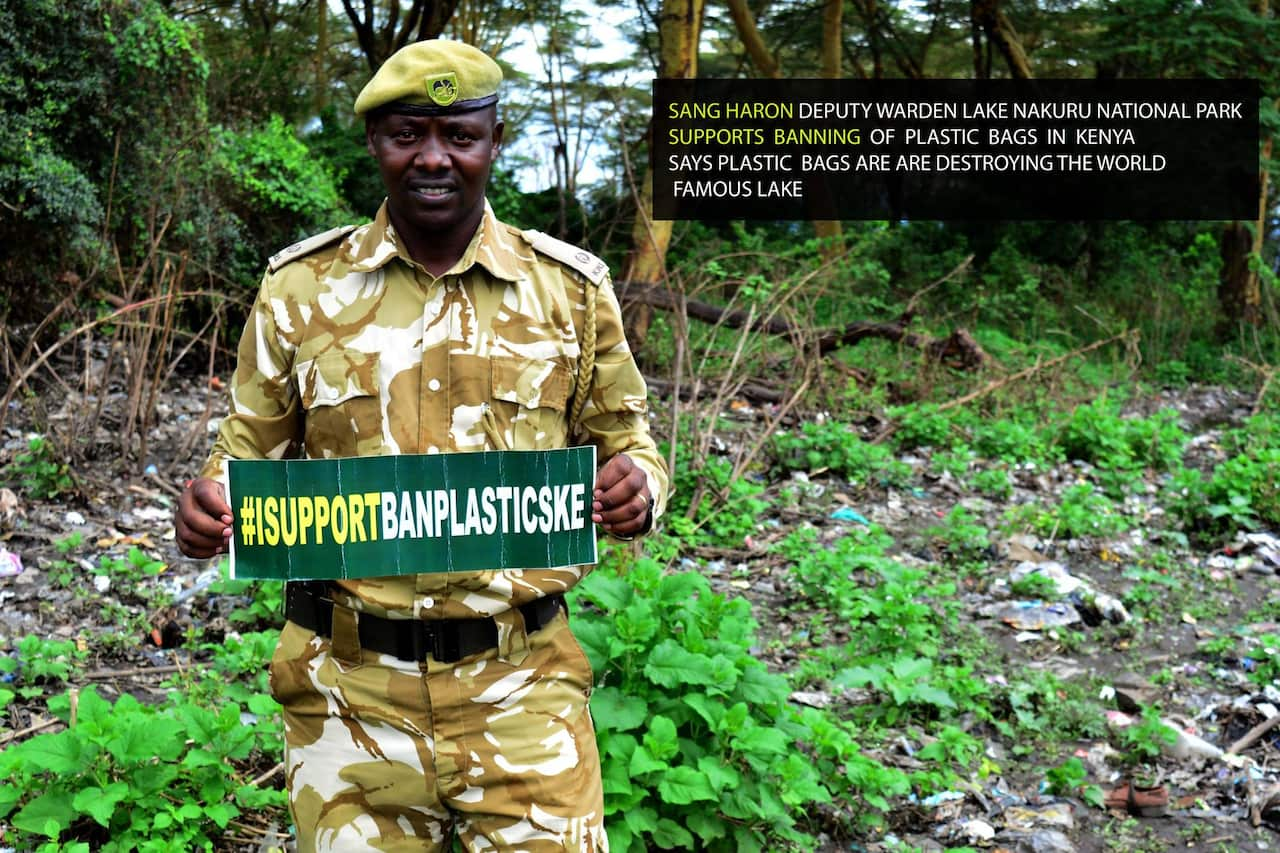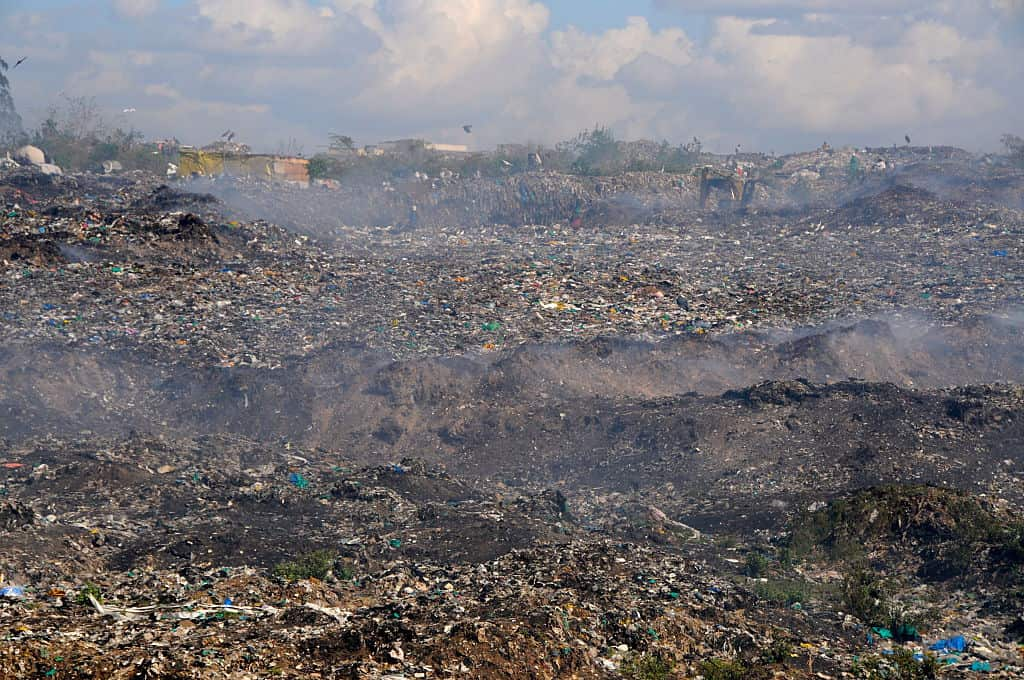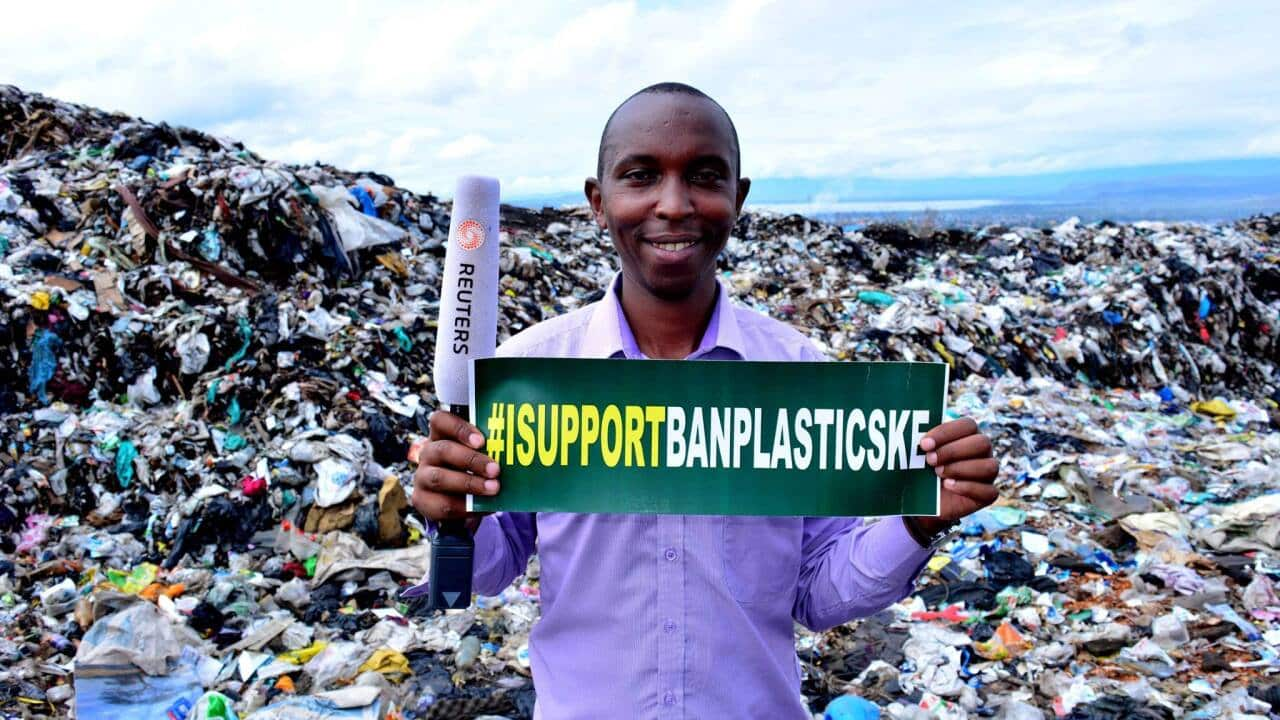The now environmental-activist's efforts have gone viral after he decided to tackle the environmental devastation caused by the overuse of plastic bags, calling on the Kenyan government to band plastic bags for good while proving that one man can change the world.
In 2015, Wakibia began a social media campaign using the hashtag #banplasticsKE with the Secretary for Environment and Natural Resources Judi Wakhungu tweeting back her support.
The activist later decided to change the hashtag to #IsupportbanplasticsKE and increase his presence online.
Kenya has for a long time suffered greatly from the negative effects of plastic bags; they have caused clogging of drains and rivers which have contributed to floods in different parts of the country.
Wakibia then took to the streets of Nakuru in Kenya’s mid-west, taking photos of people holding banners featuring the hashtag before posting them across social media.

His campaign ultimately proved successful, with Wakhungu announcing an end to both the manufacture and importation of plastic bags for household and commercial packaging in Kenya from August this year. This means that only plastic in direct contact with a product for health-based reasons is now allowed.
Celebrating the win, Wakibia wrote an article for Standard Media praising the decision by the government.
“Kenya has for a long time suffered greatly from the negative effects of plastic bags; they have caused clogging of drains and rivers which have contributed to floods in different parts of the country, they have been blamed for killing of marine and domestic animals and also being breeding grounds for malaria causing mosquito among many other ills.”

This isn’t the first time Kenya has tried to act against plastic bag-based pollution, placing a ban on bags with a thickness of 30 microns in both 2005 and 2007, before banning 60 micron bags in 2011. The east-African nation has also faced issues with fine dust pollutants, with levels typically five times as high as those in Gothenberg, Sweden.
While earlier bans struggled due to the fact that their restrictions were based on the thickness of a bag, Geoffery Wahangu, the director general of the National Environment Management Authority (NEMA) stated this time there will be no exceptions, with anyone caught breaching the notice subject to a one to two-year jail term. All manufacturers, suppliers and importers will have until August 31 to find biodegradable alternatives.

